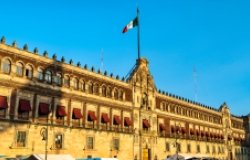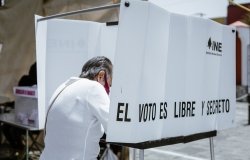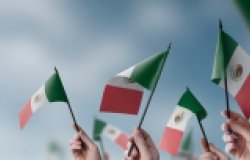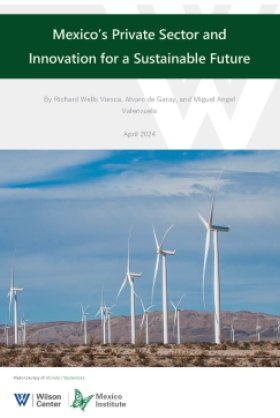Silence or Death in Mexico's Press: Crime, Violence, and Corruption Are Destroying the Country's Journalism
Overview

Mexico is the deadliest country in the Americas for journalists, and in the past four years, organized crime has killed or "disappeared" at least 18 media employees because of their work, the Committee to Protect Journalists (CPJ) reports. Although some murder cases have resulted in convictions, activists say these are not credible, and they place Mexico ninth on a world list of unresolved slayings of journalists—between Russia and Pakistan. To better protect reporters, activists are asking the Mexican government to bring to bear more resources for the prosecution of such crimes, by elevating to a federal crime the murder or assault of a journalist and by enhancing the competence of an existing special prosecutor's office. "We support the reforms and commitments of President Calderon, but what we urgently need are successful prosecutions," CPJ Executive Director Joel Simon said.
Organized crime is killing journalists for different reasons, said CPJ Senior Director of the Americas Carlos Lauría, who directed the report. An unflattering depiction in the press or a desire to chill journalistic sleuthing could be motives for reprisal killings, or traffickers may use "disappearances" to telegraph messages to enemies or authorities. If coverage threatens to expose—even unintentionally—corrupt arrangements between officials and traffickers, journalists may find themselves targeted, he said.
Narco-trafficking organizations are fighting to control not just the physical space within their territories, but also to dominate the "information space," and the elimination of journalists who report inconvenient facts is a key element of their "communications strategies," Lauría said. In some cases, he added, non-journalist media employees have become victims, such as was the case in Oaxaca state in 2007 where three delivery workers were slain in reprisal for their newspaper's coverage of organized crime.
Consequences for the practice of journalism
Journalistic self-censorship is becoming more pronounced because of the intimidation of the cartels, Simon said. Perhaps the most overt recent example of self-censorship was the media blackout in Tamaulipas state related to the killing of Gulf Cartel boss Antonio Ezequiel Cardenas Guillen, aka "Tony Tormenta," who died in a November confrontation with Mexican marines in Matamoros. "No one publishes anything now in Tamaulipas," independent Mexican journalist Dolia Estévez said. In the operation that took down Cardenas, local crime reporter Carlos Alberto Guajardo Romero was killed in the crossfire, not apparently in connection to his reporting, Estévez said.
Journalism has suffered because of the drug trafficking violence and because of the climate of fear spawned by the cartels, veteran Mexico correspondent Alfredo Corchado of The Dallas Morning News said. "Covering Mexico today is like covering a country at war," he said, likening the atmosphere of violence to the 1920s Cristero Rebellion. However, he stressed that the dangers faced by foreign correspondents in Mexico pale in comparison with those faced by Mexican-national reporters. The stakes are also higher than in the past, when journalists could at least strike a bargain with organized crime, becoming co-opted in the process but also avoiding punishment. "Today there is no longer a choice between plata (taking a bribe) and plomo (being killed); rather, now there is no choice; now it's just plomo," he said.
When on assignment in Mexico, Corchado said he employs precautionary measures verging on "paranoia," trusting no one "not the desk clerk at the hotel, not the taxi driver" since they could be halcones or cartel lookouts. See Corchado's article, "A Fighting Chance," in The Wilson Quarterly, spring 2009. here.
Impact on foreign coverage of Mexico
Foreign reporting suffers when security fears end up curtailing field assignments, inhibiting in-depth and enterprise reporting, Corchado said. Those reporters, who parachute in to cover the latest cartel-related massacre and then immediately leave out of fear for their safety, end up restricting their coverage to issues of security and violence, limiting other journalism on business, travel and leisure, etc., he said.
The following are some other consequences of narco-violence on domestic and foreign journalism in Mexico, he said:
• Self-censorship has eroded the quality of local media. Since foreign media rely on local media for information, the effects of self-censorship can be felt outside of Mexico.
• Proper attribution of sources has become increasingly challenging. Even if a source's identity is maintained in confidence, and he is identified in print only as, for example, a "federal authority," there is no guarantee that reprisals will not be made as a consequence of the reporting. This causes a dilemma for reporters who are required to attribute facts to sources, and who also must also clear a high editorial bar for the use of anonymous sources.
• Mainstream media are relying heavily on YouTube screen grabs in their reporting of drug violence in Mexico. This can be ethically problematic since such images could be staged or doctored. The reporting on the recent kidnapping and murder of a brother of an outgoing Mexican state attorney general was surprising because of the number of mainstream media outlets that made use of the YouTube images.
Amb. Arturo Sarukhan, Mexico's ambassador to the United States, spoke to the government's policy against narco-trafficking organizations, which some have called confrontational and have blamed with fueling violence in Mexico. He said that the government's engagement against drug trafficking organizations represents a "struggle for the democratic soul of Mexico," adding that attacks on journalists represent a threat to "the empire of liberty." Sarukhan cited recent law changes at the federal level that have benefited journalists, including a shield law and the downgrading of libel from felony status to misdemeanor status.
Speakers were speaking at the launch of the report, "Silence or Death in Mexico's Press: Crime, Violence, and Corruption Are Destroying the Country's Journalism," which took place at the Woodrow Wilson Center on Monday, November 8, 2010, and which was co-sponsored with the Committee to Protect Journalists. To obtain an electronic version of the report, please go here: http://cpj.org/reports/2010/09/silence-or-death-in-mexicos-press.php
Drafted by Robert Donnelly, Program Associate, Mexico Institute
Andrew Selee, Director, Mexico Institute. Ph: (202) 691-4088
Documents & Downloads
- Silence or Death in Mexico's Press: Crime, Violence, and Corruption Are Destroying the Country's JournalismDownload
- Silence or Death in Mexico's Press: Crime, Violence, and Corruption Are Destroying the Country's JournalismDownload
- Silence or Death in Mexico's Press: Crime, Violence, and Corruption Are Destroying the Country's JournalismDownload
- Silence or Death in Mexico's Press: Crime, Violence, and Corruption Are Destroying the Country's JournalismDownload
Hosted By

Mexico Institute
The Mexico Institute seeks to improve understanding, communication, and cooperation between Mexico and the United States by promoting original research, encouraging public discussion, and proposing policy options for enhancing the bilateral relationship. A binational Advisory Board, chaired by Luis Téllez and Earl Anthony Wayne, oversees the work of the Mexico Institute. Read more
Thank you for your interest in this event. Please send any feedback or questions to our Events staff.








